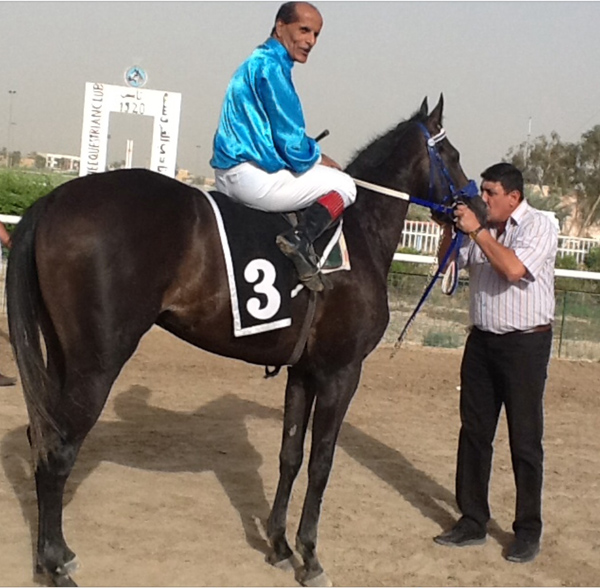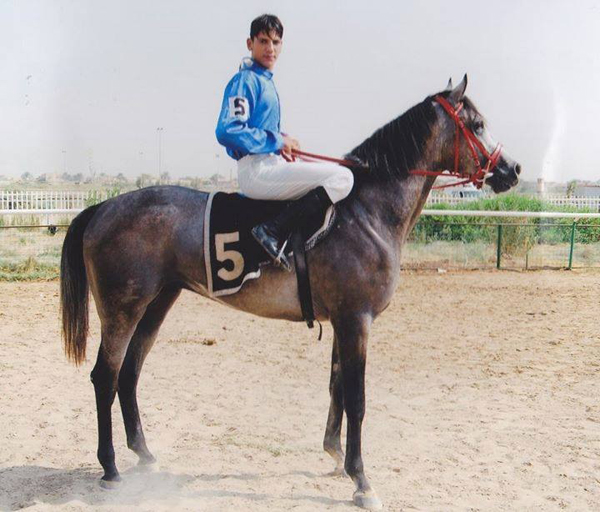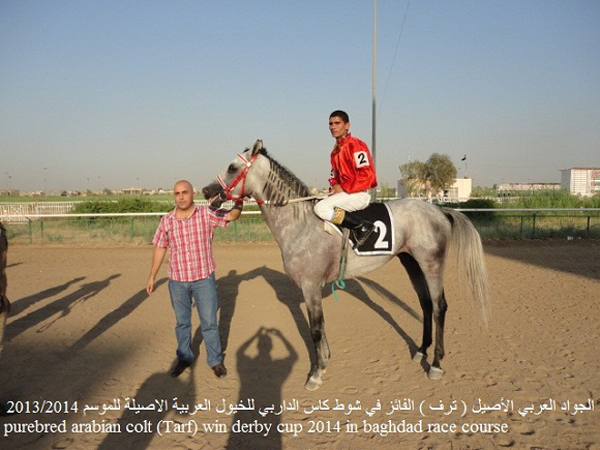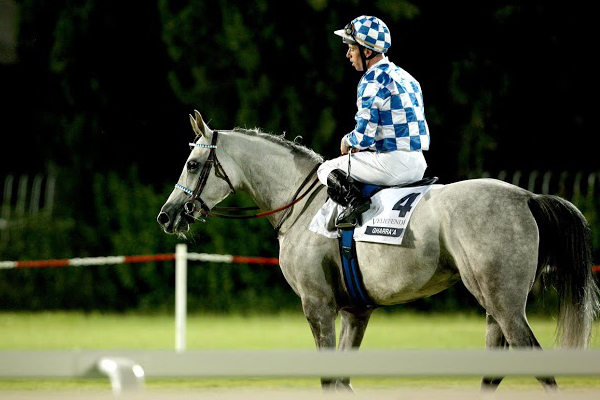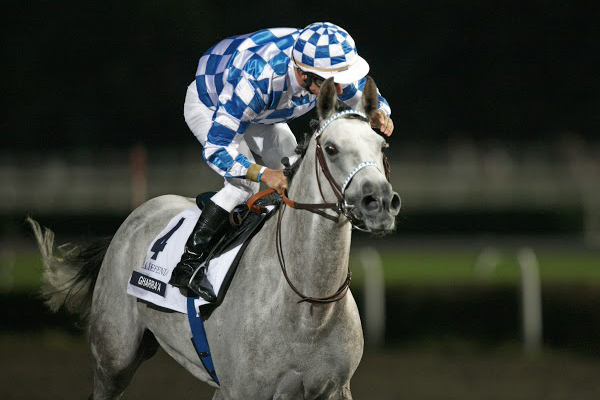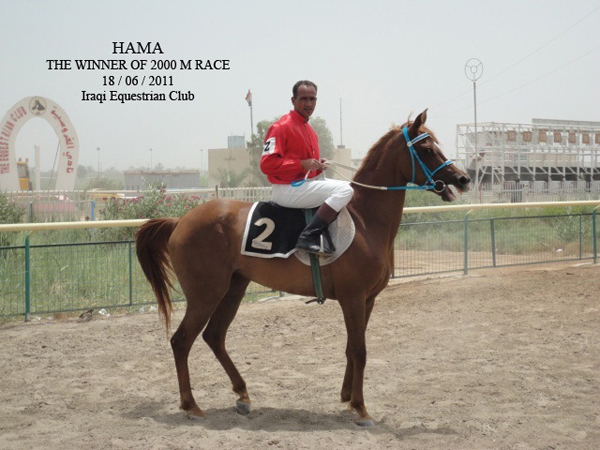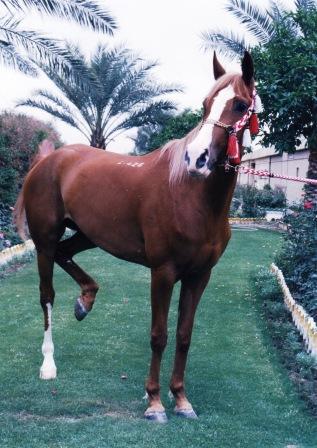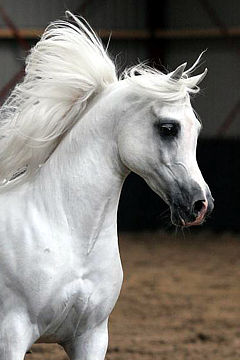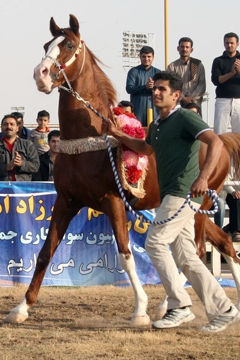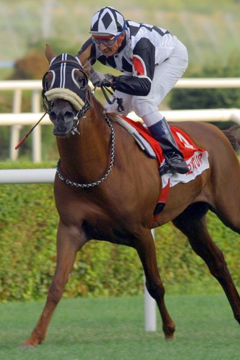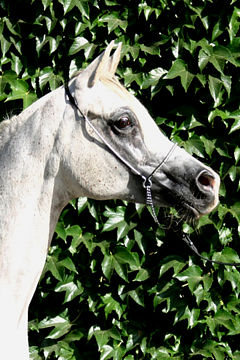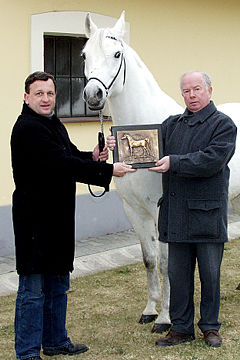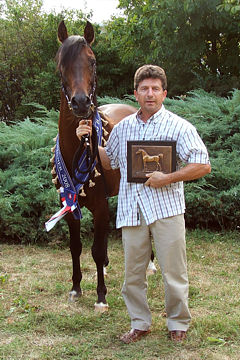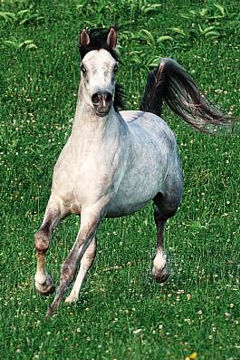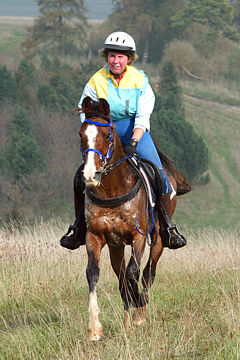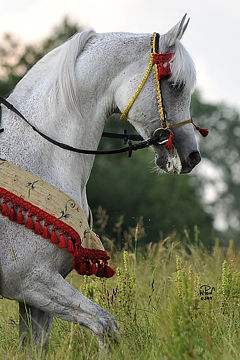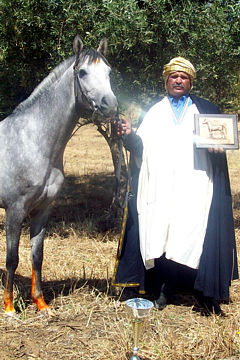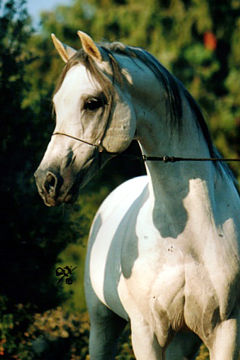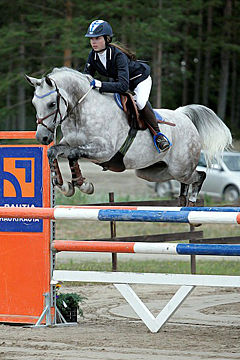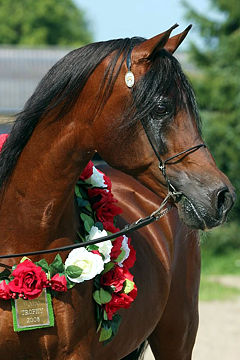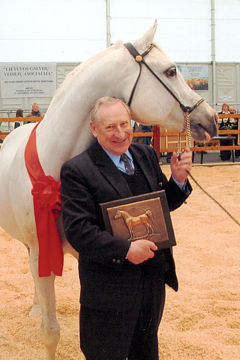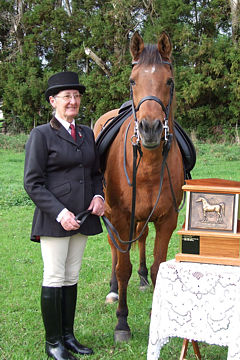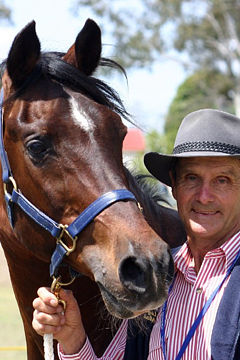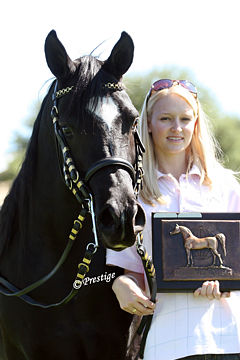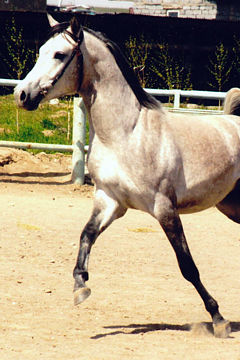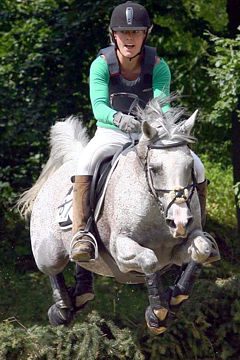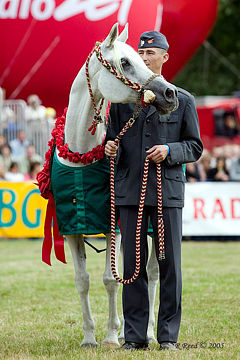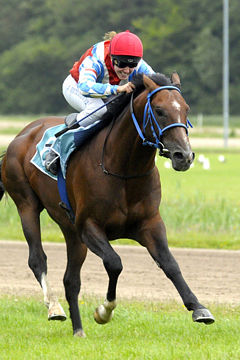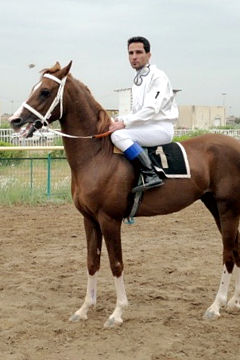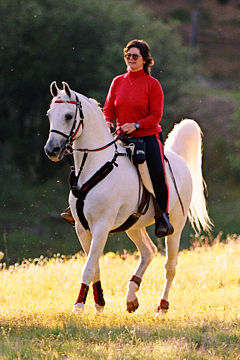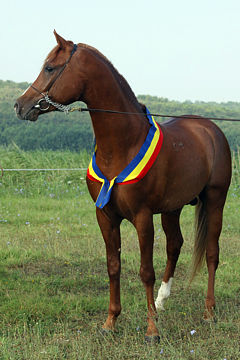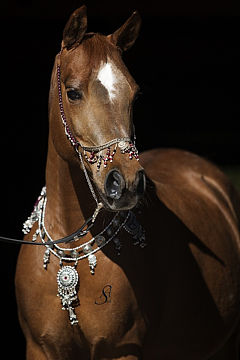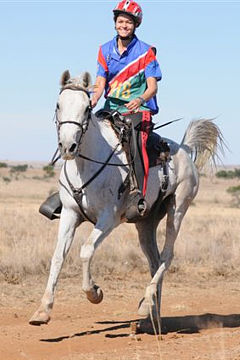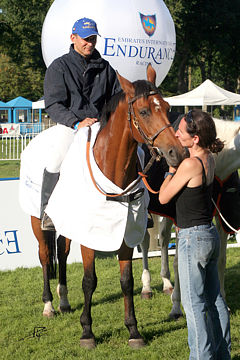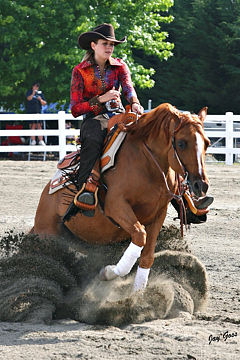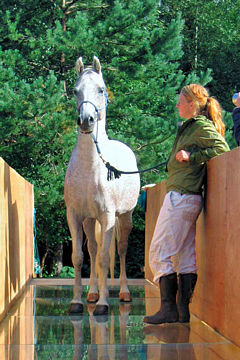![]()
Member Report from Iraq
2019 REPORT:
The Iraqi Arabian Horse Organization has provided the following information. In 2017, 20 foals were registered. There were no exports but 25 horses were imported. Racing is the main activity for Arabians in Iraq with 2 race meetings a week for 11 months of the year. Pleasure riding is also very popular.
REPORT AT 2017 WAHO CONFERENCE:
Dr. Mohammad Al-Nujaifi, Iraq: Thank you Mr. President, Your Royal Highness, Mr. Vice-President, Executive Committee members, and ladies and gentlemen. My name is Mohammad Al-Nujaifi, I am the President of Iraqi Arabian Horse Organisation and Chairman of the Studbook and Registration Committee. My co-delegate is Dr. Mohammed Mahmoud, the Registrar. First of all, I would like to thank His Majesty King Hamad Bin Isa Al Khalifa, His Royal Highness Prince Salman Bin Hamad and the Bahraini Government for helping in the organisation of this beautiful Conference and the hospitality that we have seen since our arrival.
As you know, there are a lot of problems in Iraq nowadays but anyway, I think Arabian horses continue to survive and race. We have about 800 registered currently, and probably it could be more because we lost some of them and hopefully some of them will be retrieved soon. There are about 30 stallions still, about 150 producing mares which are in breeding, and foals in the region of 40 to 50 a year. All foals are DNA and parentage verified and microchipped as well all the older horses as well.
The main passion for Arabian horses in Iraq is mainly flat racing. However it looks like there is passion now for show horses in the northern part of the country, in Kurdistan in Erbil. Racing takes place every week for about 10 months of every year, it used to be 2 meeting a week but now it is only 1 because the number has been reduced somehow. Flat racing as I said is mainly in Baghdad, but now there is another race course which has been constructed just recently in Erbil, I was there last week, and it is very modern and going to start probably in April. It already has trial races happening.
We have published volume number 9 of our studbook, two years ago and are expecting to have volume number 10 ready, hopefully next year. No horses were exported from Iraq, the total number of horses imported within the last two years 48; 17 from Syria, legally imported, 16 from Turkey and 5 horses from Denmark, these are mainly show horses, two from Slovenia, 4 from the USA and 4 from Jordan. In Erbil last year there were about 2 show horse events and it looks as if this is going to take off. We have the WAHO trophy which is given to the winning horse every year.
Finally, I would like to thank everybody, and the Bahraini Government, for this beautiful event. Thanks.
REPORT AT 2014 WAHO CONFERENCE:
Dr. Mohammad Al-Nujaifi, Iraq: I am Mohammad Al Nujaifi, the President of the Iraqi Arabian Horse Organization, and Chairman of the IAHO Stud Book & Registration Committee. I would like to start by thanking the Qatar Racing & Equestrian Club for hosting this conference, and for providing all the facilities for the conference and for the guests.
Concerning registrations, our stud book is up to date. We just published Volume 9 which comprises the period 2011-2013, and I would like to thank Kina for her instrumental support and help. There are about 50 to 60 foals registered every year. Our main activity is flat racing, just flat racing. We used to have 2 or 3 endurance rides, but now because of the security situation for the past few years we stopped it. Flat racing is still on twice a week at Baghdad Racecourse, so we have about 90 to 95 races for purebred Arabians every race. We race for 11 months of the year, apart from Ramadan when we stop.
There were 23 horses imported, mainly from Syria, Jordan and the USA. We parent verify our foals, initially with the first Iraqi stud book we started with blood typing, and we thank Dr. Hans Nagel who was instrumental in working to get the first stud book approved and also to take all the blood samples for the first horses to be tested in the German laboratory. We changed to DNA in 2000 and now we have only DNA and every living horse in Iraq has been DNA typed and confirmed. Artificial insemination is allowed, I think we had one or two foals born in the northern part of Iraq, in Kurdistan, from imported frozen semen from the USA, for show horses. Apart from that it is all natural covering, we have about 20 stallions available representing different bloodlines including Iraqi, French, Russian, Polish and American. Obviously all the flat racing results are published on the IFAHR website, so we are up to date with that. I think the number of registered horses in the studbooks, including the composite studbook volume 6 and up until now, is 1,607, up to the end of 2013. Finally I would like to thank you again, and to thank our hosts and the organizing committee. Thank you very much.
REPORT AT 2011 WAHO CONFERENCE:
Dr. Mohammed Mahmoud Mohammed Najem, Iraq. Mr. President, Executive Committee members, delegates, ladies and gentlemen. My name is Mohammed Mahmoud Najem, I am Registrar of the Iraqi Arabian Horse Organization. On behalf of the Board of the Iraq Arabian Horse Organization and the Iraqi Equestrian Club, I would like to thank our hosts, Qatar, for their warm welcome. And we thank all people who have done such a lot of work in organizing this marvellous Conference.
In Iraq the number of Arabian foals registered in 2010 was 27, in 2009 was 28, in 2008 was 26, in 2007 was 37 foals. Currently we have 600 purebred Arabian horses, of which 21 stallions and 70 mares are used for breeding purposes. Over the last 4 years 30 horses have been exported to France, Sweden, Syria and Saudi Arabia. We have imported two horses from the UAE and Saudi Arabia. This year we published Volume 8 of our studbook which contains all the foals, imports and exports of the last 4 years. We publish our studbook regularly every 4 years. We do parentage verification by DNA typing for all foals, before registration. All registered horses have been microchipped and we issue passports. We would like to send our thanks to WAHO for their support.
Arabian horse racing, and endurance continue to be the most popular activity of this breed. At the Baghdad Equestrian Club racecourse, we have 2 races weekly for purebred Arabians with an average of 100 races each year to encourage people to obtain and own Arabian horses. The results of those races are published on the IFAHR website. Thank you all for your attention.
STATISTICS FOR 2011:
Foals registered: 46; Horses exported: 3; Horses imported: 1
REPORT MADE AT 2009 WAHO CONFERENCE:
I am Dr. Mohammad Al-Nujaifi, Head of Registration and the Stud Book Committee, with me is my colleague Dr. Mohammed Mahmoud Nejem the Registrar, comprising the Iraqi delegation to this meeting. First of all, I would like to thank His Majesty Sultan Qaboos Bin Said, The Royal Court Affairs in the Sultanate of Oman, and the Organizing Committee for arranging such a wonderful Conference.
Concerning the registration of the Arabian horses in our Iraqi stud books, there are now about 700. There are 20 stallions from different bloodlines which are all available at stud free of charge, all by natural covering. There are 100 producing broodmares in Iraq. We have about 40 living foals registered every year after proper parent verification by DNA typing. We have produced our stud book Volume 6 in 2004, and Volume 7 in 2006 and we are expect Volume 8 to be published soon, which will cover the foals from 2006 to 2009.
The main activity for Arabian horses in Iraq is flat racing. There is a race every week, with about 44 races a year. We adhere to the WAHO rules and regulations and also we are awarding the WAHO Trophy every year. Last year’s winner was a colt called Dahman Baghdad, by an imported stallion of desert bloodlines from Saudi Arabia out of an Iraqi broodmare. He has now retired from racing and will stand at stud.
We have exported about 20 horses and they have been re-exported and registered in five different countries, including Syria, France, United Kingdom, Saudi Arabia and Qatar. Although before 1991 the number of Arabian horses in Iraq was about 2,000 the number dwindled down but now we are building our stock up again. Thank you.
REPORT MADE AT 2007 WAHO CONFERENCE:
In the year 2006, IAHO succeeded in the face of many problems to publish the Iraq Arabian Stud Book Volume 6. This volume contains all the living stallions and broodmares from the previous 5 volumes of our stud book, together with the imported horses and other normal chapters, including foals born until 2003. All horses you find in this Volume had been parent verified by DNA typing. Since the WAHO Conference in Warsaw in 2004, IAHO has concentrated on taking care and following up the produce of around 80 broodmares and 20 stallions, most of which are from the bloodlines imported from some European countries and from the UAE.
In April 2007 IAHO issued our Stud Book volume 7, which covers the years 2004, 2005 and 2006. All foals are also parent verified by DNA, exactly as for volume 6. Microchipping of all our registered horses will be carried on within a couple of months.
Many activities have been arranged by our Organization, among these are the Arabian horse races which are held once a week. In our agenda is to arrange the Arabian Horse Shows and the endurance competitions, but the recent bad security conditions enforced us to postpone these activities temporarily.
No artificial insemination or transported semen is available in the country at the moment. Embryo transfer is not used. Some larger studs are making their stallions available free of charge for Arabian breeders, to encourage the Arabian breed.
In 2007, Iraq registered 40 foals, and one horse was imported.

